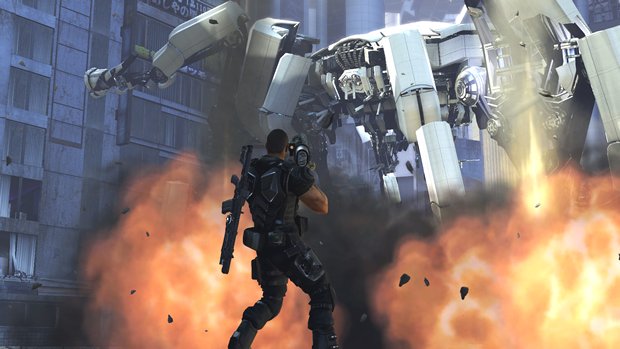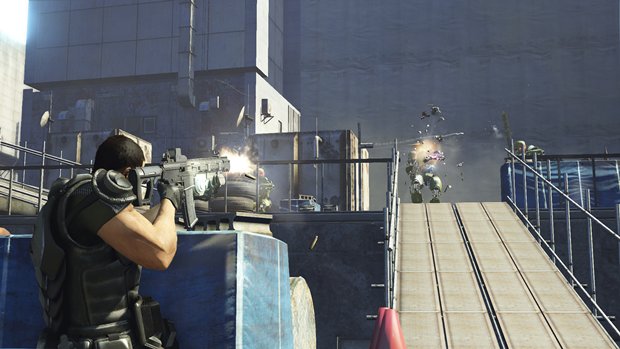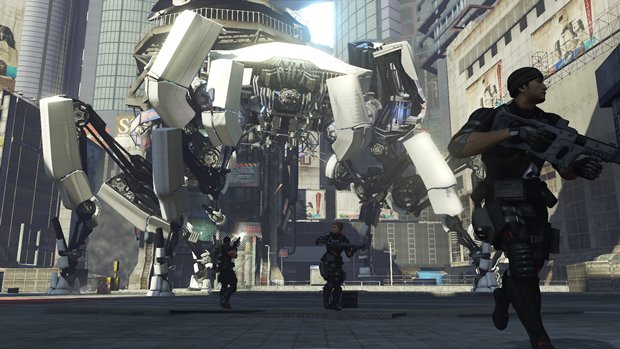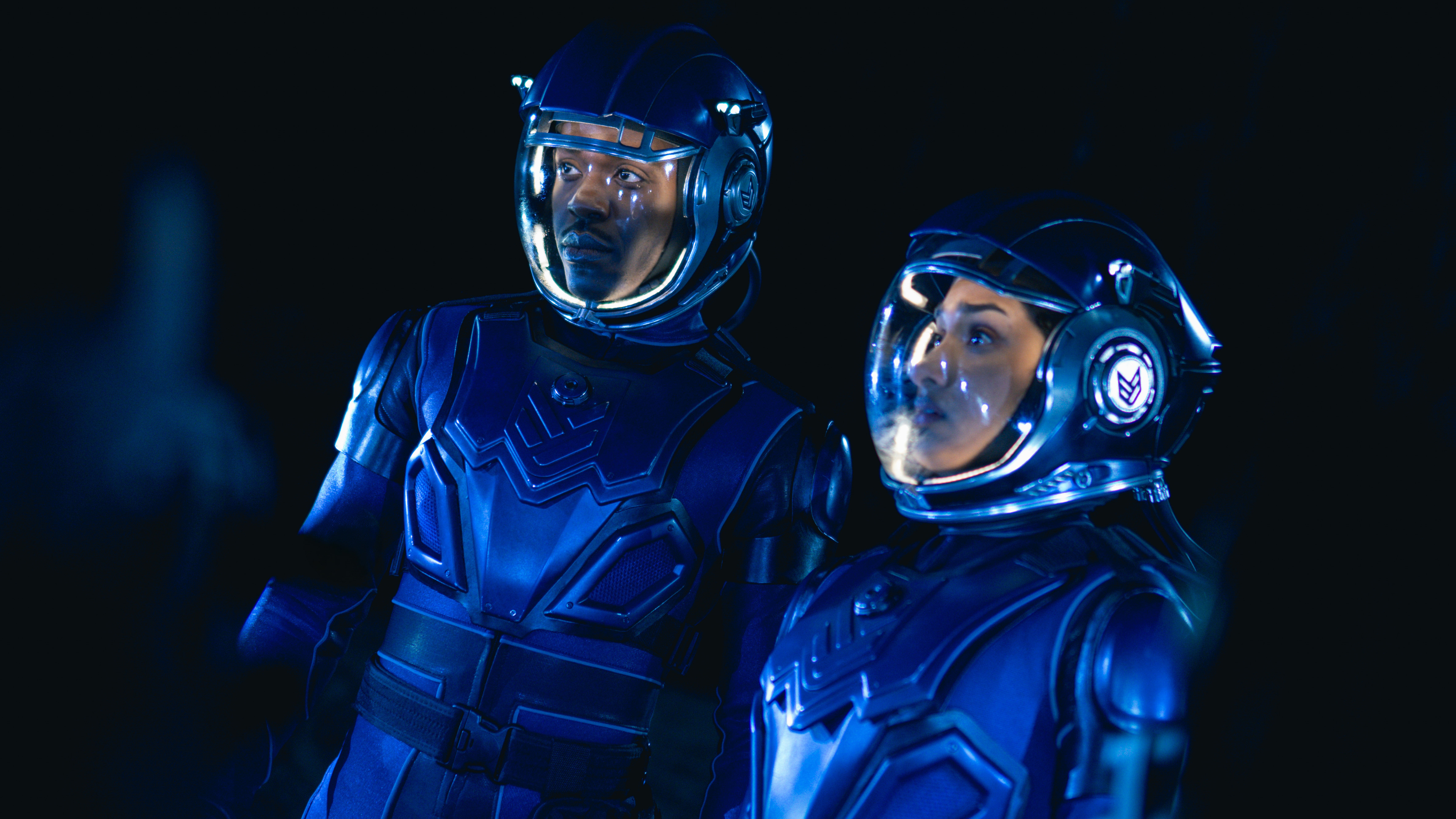E3 2011: Binary Domain preview
Sega's next action shooter could be this year's Vanquish
When Sega was able to deliver a Japanese take on a Western action game with last year’s Vanquish, it was a bit of a surprise. Now Binary Domain, a new sci-fi shooter from Sega Japan, seems even more unlikely. Sure, it has the Western sensibilities of Gears (right down to the Roadie Run), but the setting and atmosphere feel entirely Japanese.
As in Vanquish, the plot is pretty basic: in the not-too-distant-future, robots have become a commonplace part of everyday life, though international laws have outlawed the manufacture of machines built to resemble humans. When an incident occurs in Japan involving – you guessed it – a breach to said law, an international team of military operatives is ordered to Tokyo to apprehend this masquerading android. It’s pretty familiar territory for anyone who’s seen Blade Runner.
There’s a catch though – in the fiction of Binary Domain’s history, Japan has moved back towards the isolationist philosophy of the feudal era. As a result, the entire country is not exactly prepared to roll out the welcome mat for any foreign agents; the streets are brimming with cybernetic armies prepped to tear any invaders to pieces.

When we first saw the trailer for Binary, we weren't exactly sure what to think. The interesting premise and polished, clean aesthetics (there’s that Vanquish influence again) looked great; the promise of robot-centric combat seemed a bit more questionable. How could they keep the gameplay interesting? Can you really offer that much variety with cyborg enemies?
It doesn’t necessarily reinvent the wheel for action shooters – you’ve got AI squad buddies, cover, regenerating health and damn near every other kind of expected shooter mechanic. That’s not so important, though. What works about Binary is that it just feels the way it should; you can tell the furious difference between the hit levels on a shotgun, assault rifle or grenade, and the dynamically reactive damage modeling on enemies means that any destruction you cause is deeply satisfying.

This is only part of what keeps the game from feeling too stale. A more interesting corollary is the different ways the AI can react to conditions on the battlefield, including their own. Say you pop a cyborg in the head a few times. Rather than simply going down, it might fry its circuits, causing it to malfunction, operating erratically and maybe even attacking its allies. Before that happens, though, another robot could mercy kill it before it can start to rampage. If you blow off a machine’s arm that happens to be holding a weapon, it will pick it up with the other hand. There was even a giant spider mech boss in the demo that could support itself upright by leaning on nearby buildings if one or more of its legs are destroyed. The robots themselves also have a severe Terminator vibe, and their relentless pursuit of you has an eerie effect – especially when exposed armor is revealing a mess of cold circuitry.
As for the AI on your side, your squadmates ask you simple questions between battles that serve as in-game banter while measuring their trust levels with you. At the same time, if you disobey an order from someone it could have a negative effect on your relationship, and both factors will affect their willingness to comply if you order them to, say, cover you or fall back. The squad commands are basic, but even that little shred of character development makes the game flow more enjoyable.
Sign up to the GamesRadar+ Newsletter
Weekly digests, tales from the communities you love, and more

The levels we saw in Binary Domain had your standard Neo-Tokyo-post-apocalypse, the game apparently features some landmarks in Japan (the Hachiko statue was clearly visible in the Shibuya station level). In any case, it appears that Binary Domain has a consistent character underlying its more-generic outward appearance. With its crisp combat and clean cybernetic aesthetic, it may be this year’s Vanquish. We’ll find out when it hits this Fall.
Jun 10, 2011


